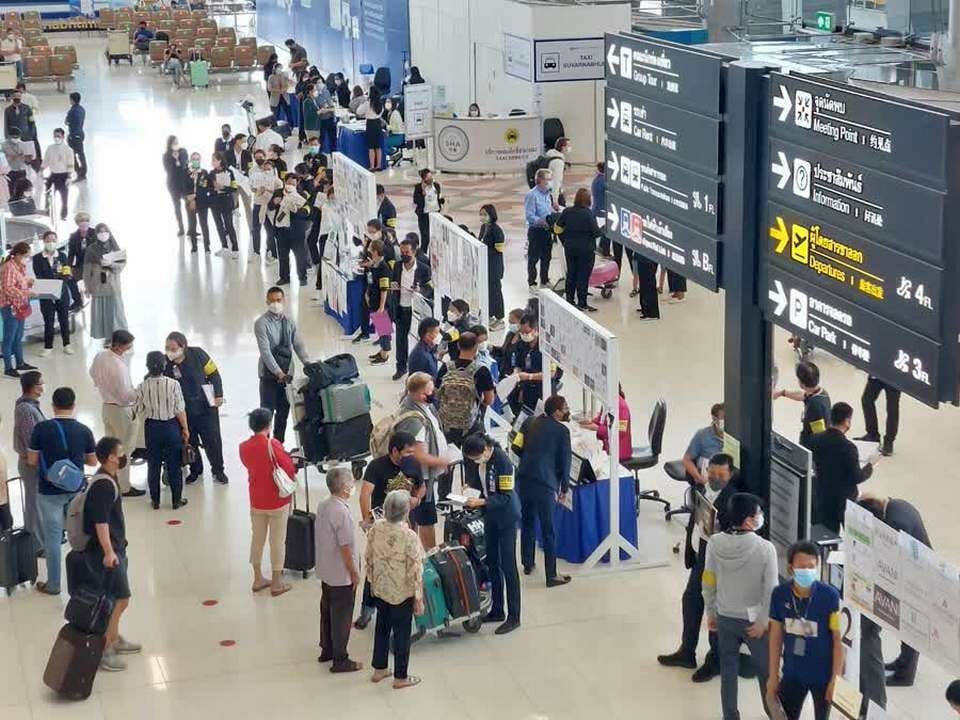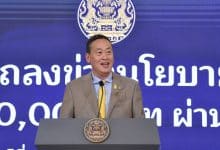Thailand scraps controversial tourist tax scheme

In a dramatic U-turn, Thai Prime Minister Srettha Thavisin announced the cancellation of the highly debated tourist tax.
Initially proposed as a post-pandemic measure, the 300 baht tax at airports and 150 baht tax by land or sea, caused a storm of opposition from the travel industry due to its ambiguity and potential for confusion.
The National Tourism Policy Committee championed the tax to cover medical expenses for tourists involved in accidents or fatalities. However, it soon emerged that a mere 10% of the funds would be allocated for insurance, raising concerns about its discretionary nature.
The remaining funds were to be used for restoring tourist sites, such as temples and archaeological spots, with plans for public lavatories and the preservation of religious images.
Despite the good intentions, the execution plan was fraught with issues. Determining who should pay the tax proved complicated, as it exempted Thai citizens, diplomats, work permit holders, and children under two years old. Elite visa holders and long-term residents on retirement or marriage visas argued they were not tourists.
Airlines baulked at the idea of incorporating the tax into tickets due to the impracticality of identifying exempt passengers. The proposal to install payment booths at entry points was quickly dismissed, fearing it would lead to long queues and tarnish Thailand’s tourist-friendly image. Alternative solutions, such as using credit cards and QR codes, also fell through due to transaction issues.
In February, Thailand launched the Traveller Safety Website, offering refunds for accidents, but this scheme only applies to tourists with specific visas and requires pre-registration, expiring in August.
Announcing the cancellation, PM Srettha conceded that the scheme was not worth the effort. He expressed confidence in the increasing influx of international visitors to boost national revenue. However, expats on pre-taxed pensions and policies seek clarity on Thailand’s taxation policies regarding overseas income, a hot topic awaiting the government’s frank discussion, reported Pattaya Mail.
ORIGINAL STORY: Taxing times: Tourism Minister stands firm with 300 baht tourist tax
In a recent press conference, Thailand’s new Tourism and Sports Minister, Sermsak Pongpanich, hinted at the impending introduction of a tourist tax, known as the Kha Yeap Pan Din, translating to a landing fee.
Although no specific timeline was provided for its implementation, the newly-appointed minister emphasised the unlikelihood of abandoning the proposed tax.
Sermsak, formerly the Culture Minister, assumed the Tourism and Sports portfolio during last month’s Cabinet reshuffle.
The measure was greenlit by the Cabinet in February last year, proposing a fee of 300 baht (US$8.17) for foreign arrivals by air and 150 baht for those entering by land or sea.
Speaking at an event organised by the Association of Thai Travel Agents (ATTA) to promote sustainable tourism, Sermsak affirmed the government’s commitment to the tax.
“I have received the principle of the measure and [the ministry] is considering the implementation process. We already have people working on it.”
The Bangkok-born Prime Minister Srettha Thavisin previously advocated for a delay in fee collection to prevent any interference with the government’s current tourism promotion.
When initially proposed in late 2022 by former Tourism Minister Phipat Ratchakitprakarn, the revenue from the tourist tax was earmarked for foreigner insurance and bolstering the tourism development fund, aimed at enhancing accessibility and facilities at tourist sites.
Addressing his priorities as the new tourism minister, Sermsak outlined plans to enhance tourism infrastructure and promote lesser-known attractions, including recently unearthed ancient sites and UNESCO World Heritage sites.
“The ministry will launch special programs to promote these places to attract foreign visitors.”
Citing the deficiency in comprehensive tourism infrastructure as a longstanding impediment to industry growth, Sermsak referenced the World Economic Forum’s Travel & Tourism Development Index 2024, which saw Thailand drop six spots to 47th among 119 countries compared to pre-pandemic rankings.
With three years remaining in the current government’s term, Sermsak expressed determination to elevate Thailand’s position on the index, aligning with the administration’s objective of positioning the country as a regional hub for aviation and tourism, reported The Nation.
Latest Thailand News
Follow The Thaiger on Google News:


























